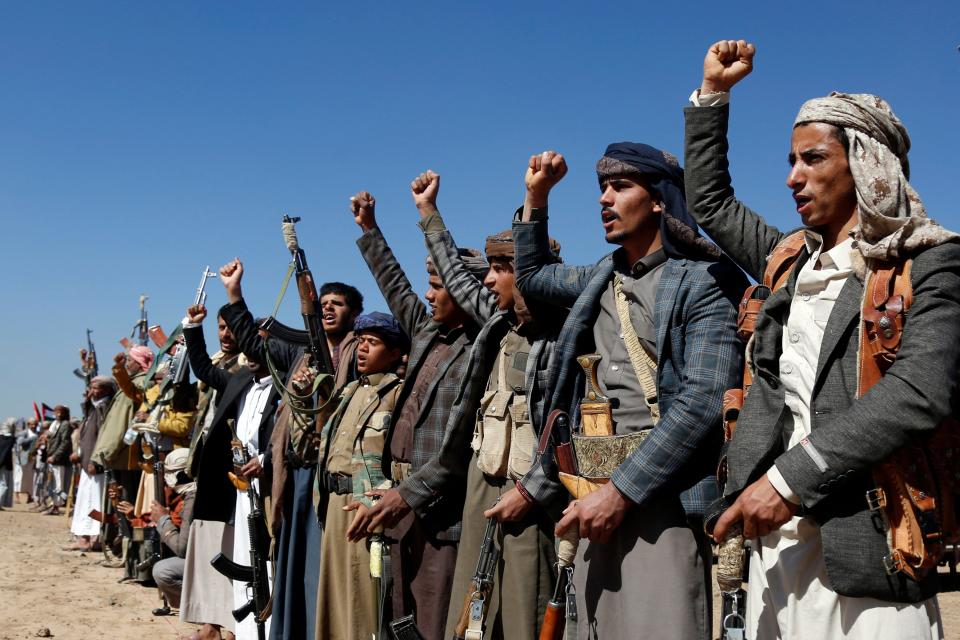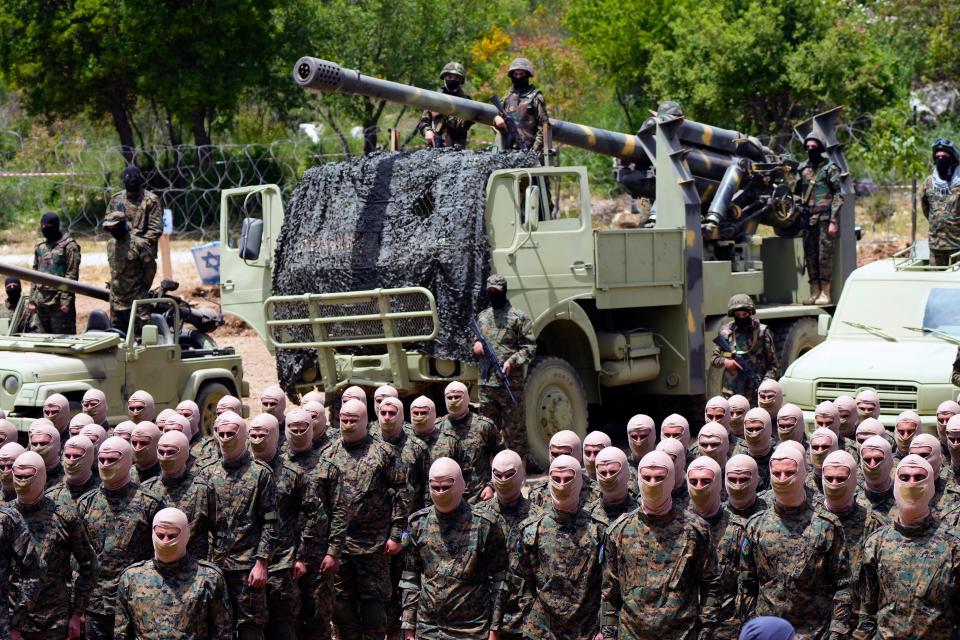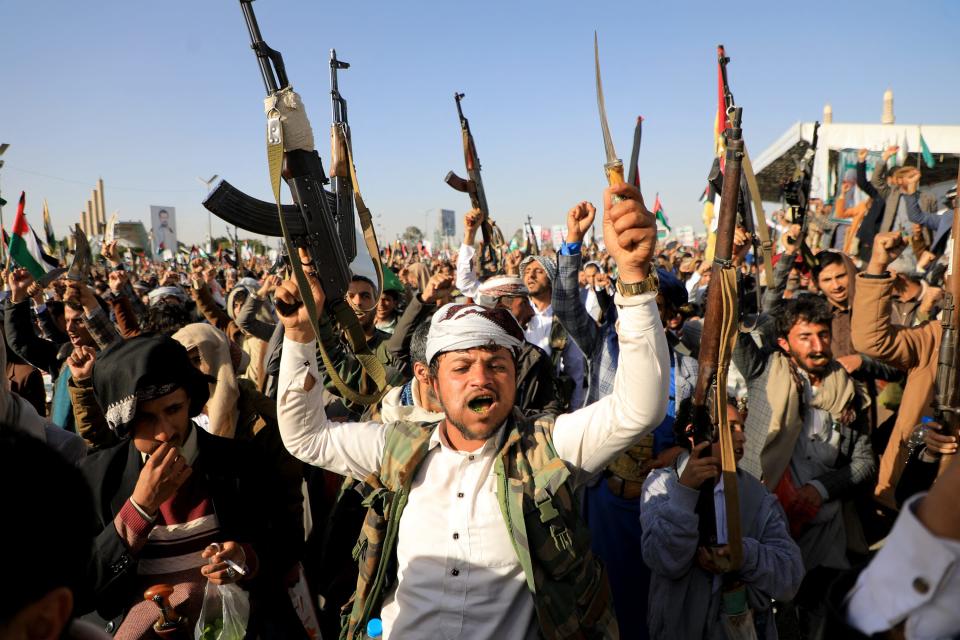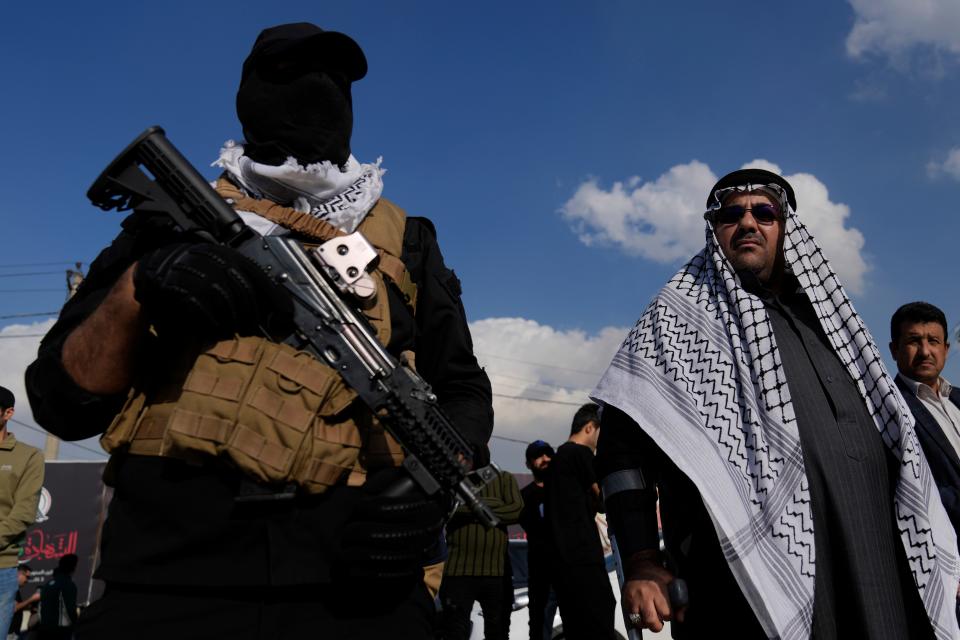Hamas, Hezbollah, Houthis and beyond: Who are the Iran-backed groups in the Mideast?
Attacks by Iran-backed militant groups throughout the Middle East – including the first to kill U.S. service members – have dramatically heightened the risk of a broader regional war spreading beyond the Gaza Strip.
Since Israel declared war against Hamas following the deadly attack on Oct. 7, groups with ties to Iran have fired missiles across the Lebanese border, targeted bases in Iraq and Syria where U.S. service members are stationed and attacked commercial vessels in the Red Sea.
The latest escalation in the conflict occurred Sunday when militias attacked a U.S. military outpost in Jordan, killing three troops and wounding dozens.
What you need to know about the Iran-backed militant groups that have launched attacks against Israel and its allies since the war between Israel and Hamas began:
Four flashpoints in Gaza conflict: What could spark a wider war in Middle East

Hamas
Hamas – an acronym for Harakat al-Muqawama al-Islamiya, or Islamic resistance movement – was founded in 1987 during the first Palestinian uprising against Israeli occupation of Gaza and the West Bank by a Palestinian activist connected to the Muslim Brotherhood. The group calls for establishment of an Islamic Palestinian state that would replace the current state of Israel and believes in the use of violence to carry out the destruction of Israel.
In 2006, Hamas won parliamentary elections, and in 2007 the group violently seized control of the Gaza Strip from the Palestinian Authority, which was controlled by the rival Fatah movement that governs the West Bank. There have been no elections since. The U.S. State Department designated Hamas a terrorist group in 1997.
On Oct. 7, the group launched a deadly attack on communities along Israel's southern border, killing about 1,200 people, mostly civilians, and taking more than 240 hostages back to Gaza. Israel responded with a bombing campaign and an extensive ground invasion, leading to a humanitarian crisis and the deaths of over 26,000 Palestinians. The Israeli military vows to destroy the group in order to prevent another attack on Israeli citizens.

Hezbollah
Hezbollah, a powerful Islamic militant group with deep ties to Hamas, was formed in Lebanon in 1982. Hezbollah, which translates to "Party of God" in Arabic, is a Shiite Islamic group.
In 1985, Hezbollah released a manifesto stating its goals, including the destruction of Israel and the expulsion of Western influences from the Middle East. It moved into Lebanese politics starting in 1992. Today, Hezbollah is known as a “state within a state.” It's part of the Lebanese parliament and government as it operates its own political, military and social services network, according to the Wilson Center.
The militant group is notorious for its attacks worldwide, says the Center for International Security and Cooperation at Stanford University. That includes the October 1983 suicide bombing that killed 241 U.S. service members, most of them Marines, in the American military barracks in Beirut.
In 2006, Israel and Hezbollah fought in a one-month war that saw Israeli airstrikes destroy large swaths of Lebanon.
Hezbollah and Israel have traded rocket and missiles across the Lebanese-Israeli border, but the group has held back from a more intense escalation. In early January, an Israeli airstrike killed Wissam Hassan Al-Tawil, one of Hezbollah's top commanders.

Houthis
The Houthis, an Iran-backed rebel group known as Ansar Allah, or Supporters of God, started in the 1990s. In 2014, the group seized the capital of Yemen, Sanaa, and overthrew the Saudi-backed government.
The following year, a Saudi led coalition attempted to restore Yemen's internationally recognized government to power, leading to a drawn-out conflict between Saudi Arabia and Iran that's killed more than 150,000 people and caused one of the world's worst humanitarian disasters.
In December, the Houthis began attacking commercial ships in the Red Sea. After the group ignored an ultimatum from the U.S., the Pentagon launched attacks on sites used by the Houthis to target and launch missiles.
In January, the Biden administration relisted the Houthis as a “specially designated global terrorist” group, citing the rebel's attacks on commercial shipping in the Red Sea.

Islamic Resistance in Syria and Iraq
The Islamic Resistance is a term that encompasses all Iran-backed militias in Iraq and Syria. The militias oppose U.S. support for Israel in the war in Gaza and American involvement in the region more broadly.
The smaller Iranian-backed militant groups have battled with U.S. and coalition forces in Iraq and Syria for years, But there's been a spike in attacks against bases where U.S. troops have been deployed since the Israel-Hamas war began.
The group claimed responsibility for the attack on Tower 22, a U.S. military outpost in Jordan near the border with Syria. The attack killed three U.S. troops and wounded dozens.
Contributing: Jeanine Santucci, Tom Vanden Brook, Joey Garrison, Kim Hjelmgaard, George Petras, Ramon Padilla, USA TODAY; the Associated Press
This article originally appeared on USA TODAY: Hamas, Houthis and Hezbollah: Who are Iran-backed groups in Mideast?
